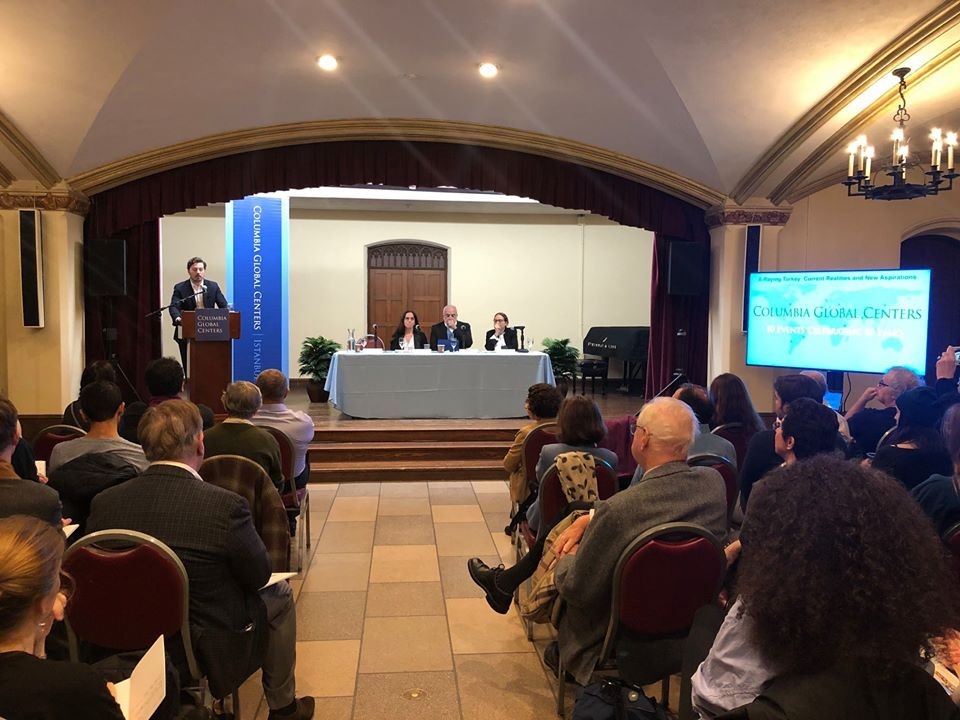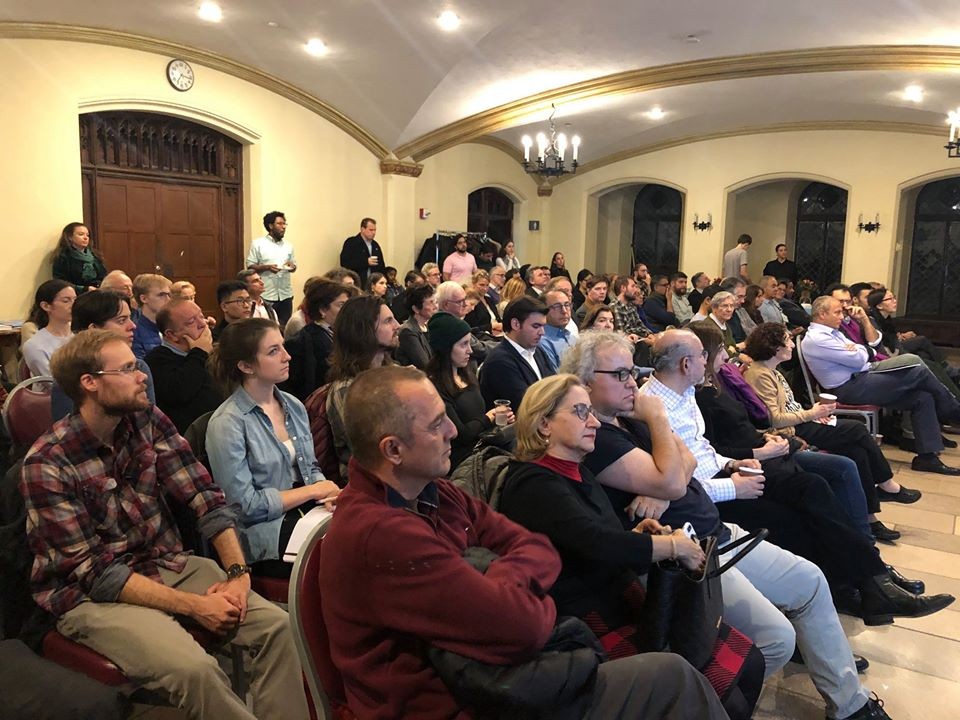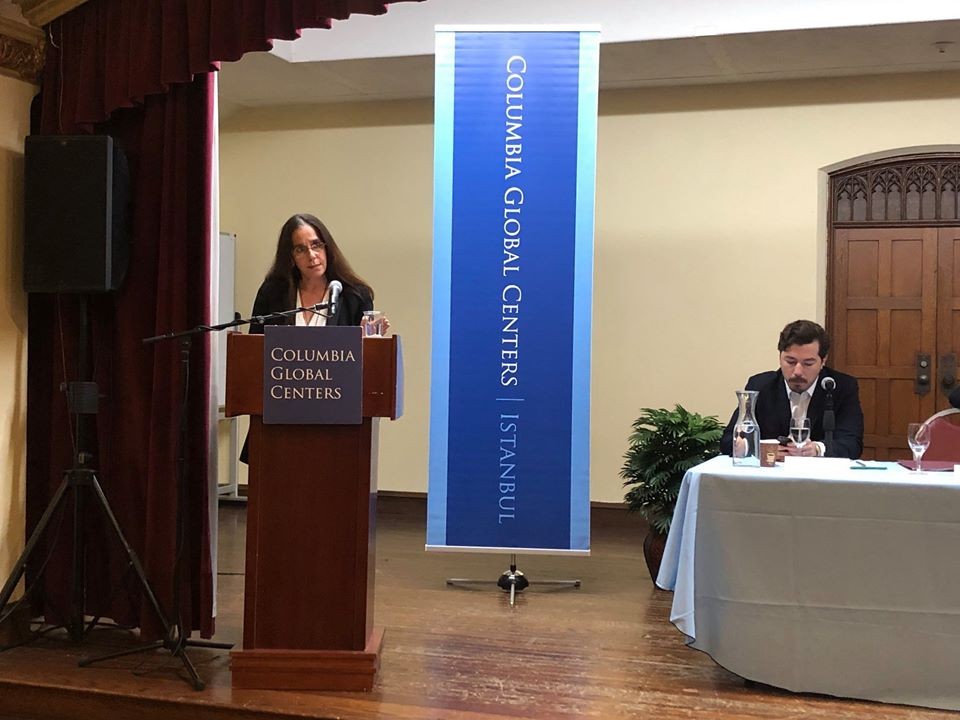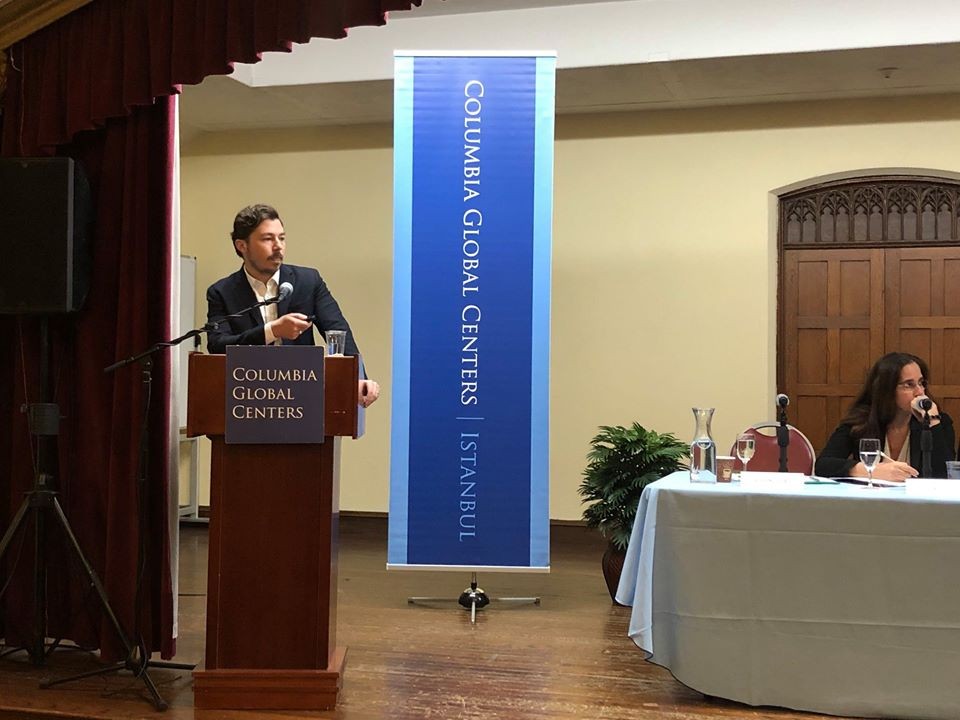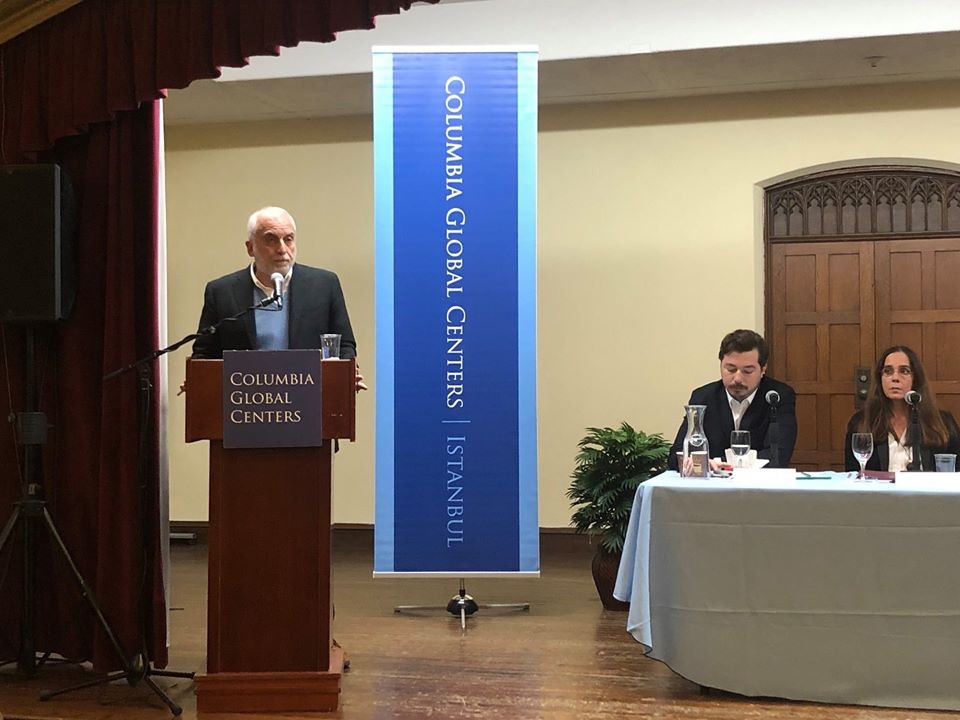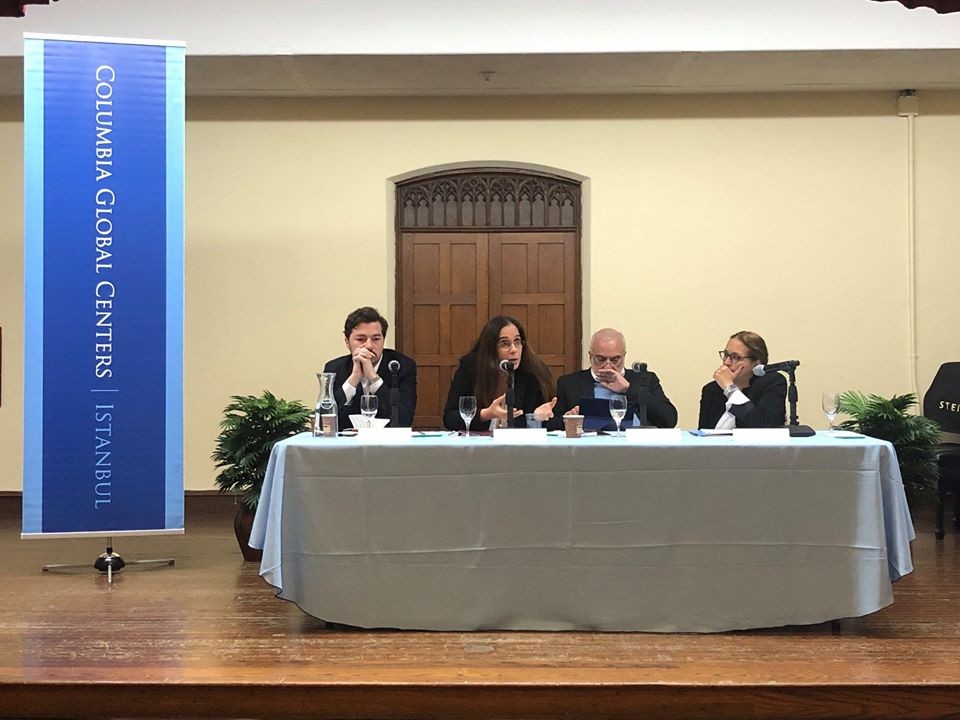X-Raying Turkey: Current Realities and New Aspirations
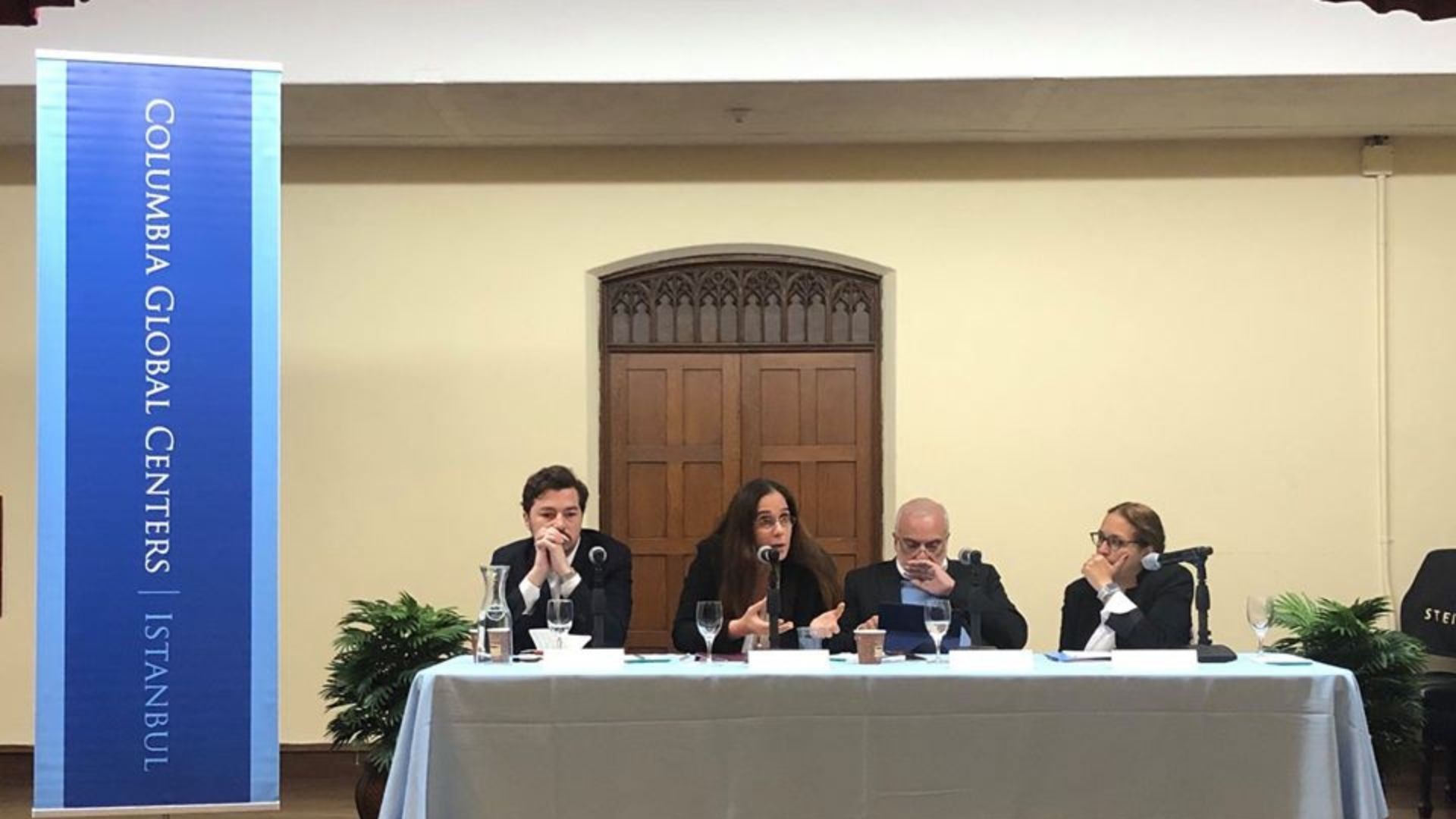
"Since its foundation, Columbia Global Centers | Istanbul serves as a valuable medium for matters Turkish to be analyzed properly and be placed in a global context. Given the fact that most every major issue that preoccupies the world, and of course including the current all-encompassing threat of the pandemic, touches Turkey in one way or another, it is almost imperative that the country is understood correctly. The Istanbul Center also enables Turkish participants and contributors to check their knowledge against what goes on globally and gives them the opportunity to find new contacts and channels for their work." Soli Özel, Senior Lecturer at Kadir Has University
As part of a year-long series of 10 events celebrating the Columbia Global Centers' 10th anniversary in 2019, Columbia Global Centers | Istanbul organized a panel on “X-Raying Turkey: Current Realities and New Aspirations” on November 7, 2019 on Columbia University’s campus. The event had additional sponsorship by the Sakıp Sabancı Center for Turkish Studies.
The panel explored Turkey at yet another pivotal point in its history – given the recent political and economic crises as well as regional pressures – and aimed to uncover streams of challenges and opportunities for the country in 2020 and beyond.
The evening started with opening remarks by Safwan Masri, Executive Vice President for Global Centers and Global Development, and İpek Cem Taha, Director of Columbia Global Centers | Istanbul.
The panel started with Can Selçuki, co-founder of Istanbul Economics, a public opinion and big data firm. Can set the stage for the discussion by giving an overview of the electoral landscape and economy in Turkey and sharing the most recent public opinion statistics. Voting behavior changes either by a shock to the system or through a process. Can noted that such a process has been taking place since 2015 in Turkey, and the municipal elections in 2019 were the most recent evidence of this. A significant driver of voting in the municipal elections was a downturn in household finances due to high inflation (>20%) and 14% unemployment. In addition, the opposition parties strategized: they were united and had candidates who could speak to both sides of the aisle. An important outcome of the election was that a new group of voters emerged, who voted outside of their normal party lines.
Next, Ayşe Kadıoğlu, Professor of Political Science at Sabancı University and currently a Visiting Scholar at the Sakıp Sabancı Center for Turkish Studies at Columbia University, layered on the internal dynamics of de-democratization and the rise of illiberalism in Turkey. She noted that Turkey was actually part of a global rise of authoritarian zeitgeist, also happening in countries such as Brazil, Venezuela, Hungary, Poland, etc.
Finally, Soli Özel, a senior lecturer at Kadir Has University and a columnist at Habertürk and T24 daily newspapers, took the discussion a step back and talked about Turkey’s international relations including its foreign policy towards Syria. He said that we may be experiencing a “1945 moment” right now, where Turkey took a clear strategic position to side with the West in the Cold War. Now, Turkey is considering jumping ship and moving away from these strategic alliances. It is not a question of can it, it is more a question of should it. And, on top of that, a Turkey, not aligned with the West, has not been thought through by its Western allies.
These were some of the many current realities of Turkey discussed during the panel. Stay tuned for a video of the event for more highlights.
